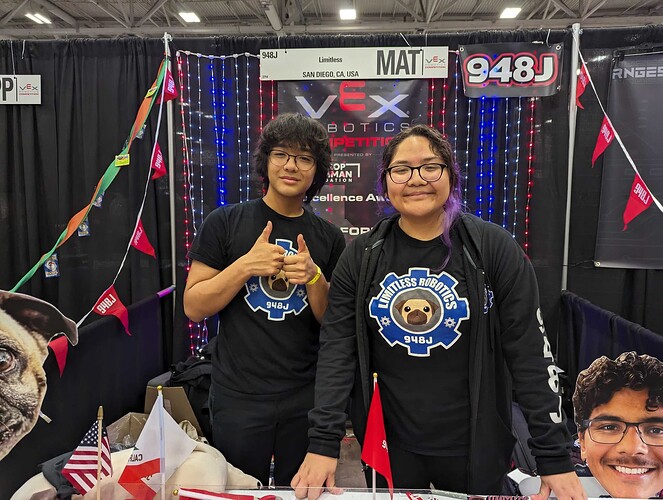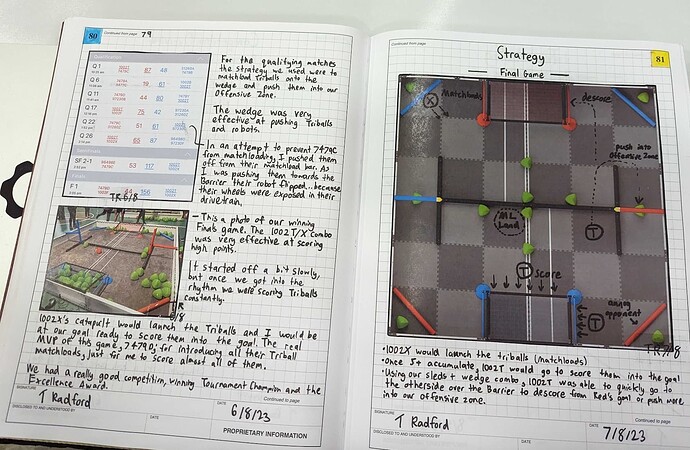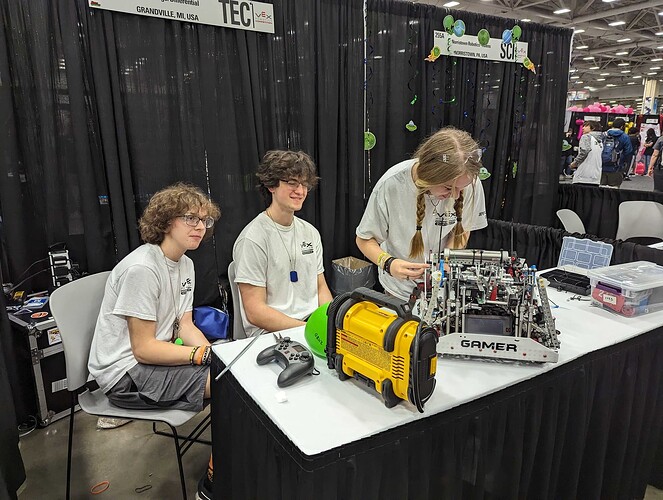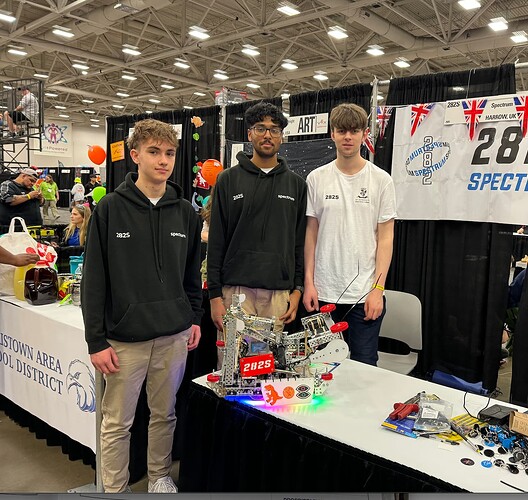Hello from Dallas, TX! I’ve spent the day talking to an amazing array of high school robotics team members and their coaches and parents. One of the things I wanted to find out was what qualities and problem solving strategies made their teams successful enough to make it all the way to Worlds. Over the course of the day, a couple of consistent ideas emerged.
Invariably, the teams mentioned sharing information and building networks of other teams that they could go to for support and ideas, and offer support in return. There were teams that formed online communities, as well as teams who hosted “league nights” of teams in their areas to test out strategies and learn from each other in person. Some teams mentioned mentoring other teams that were just getting started, as well as getting support and information from sister teams in their schools and organizations.
Viewing the sharing of information and ideas as a strength is an essential disposition not only in VEX Competition, but for solving the big problems facing this generation of students as they enter adulthood, and their generous attitudes were really quite inspirational.
Another consistent quality of successful teams were coaches and teachers who were extremely confident in their teams and allowed the students to have a great deal of autonomy over their learning. They all spoke of facilitating the students’ learning without getting in their way, recognizing the need to avoid capping the students’ growth. Again, the kids on these teams inspire so much confidence in the future, as they are persistently resourceful on multiple levels. They understand the need for iteration and are not daunted by it - the average number of robot redesigns by teams was five complete overhauls!
I’m looking forward to the next few days of competition and excitement, and learning more from these independent innovators!




